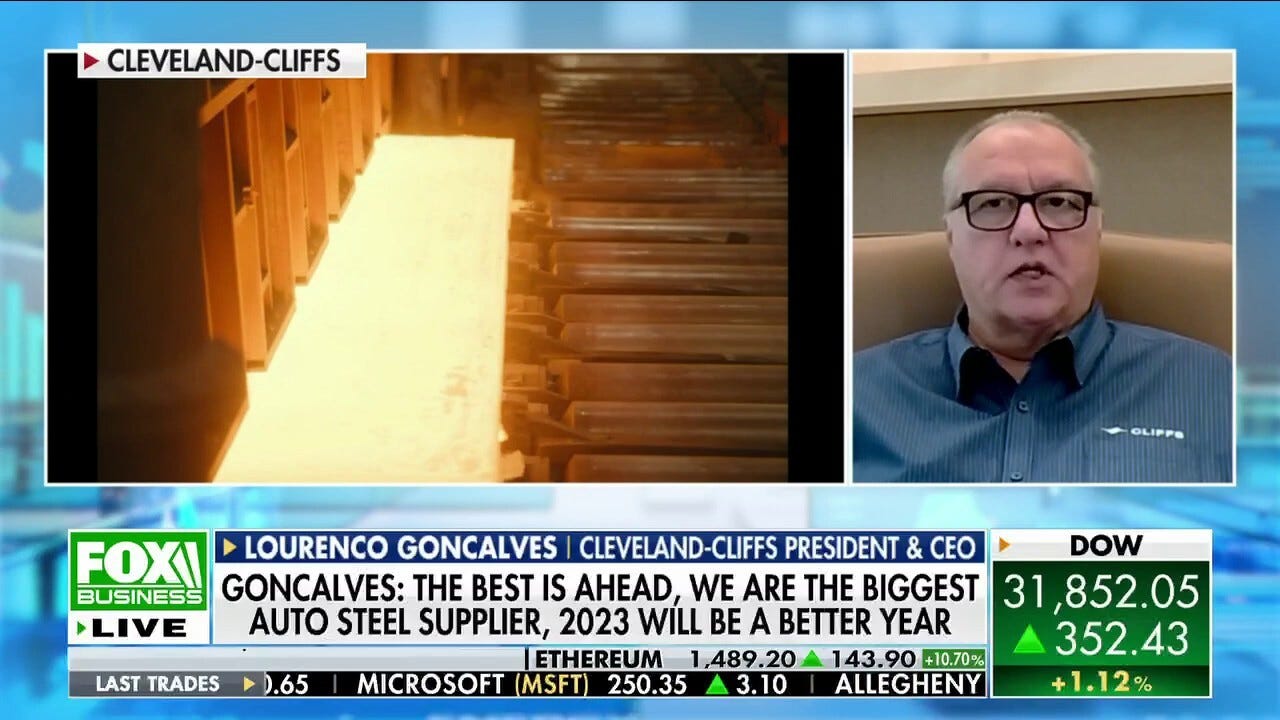Gas & Mining Monopolies
How monopolists on the range and in rural communities scramble traditional politics
Welcome to Monopoly in Minnesota a newsletter about the fight against corporate power in the North Star State. If you like what you see, please subscribe and share!
Two of the first Monopoly in Minnesota pieces I wrote focused on on Scott Jensen’s campaign plan to allow big box retailers with gas stations to engage in predatory pricing, and Cleveland Cliffs cornering of mining jobs on the Iron Range. There have been some interesting developments this legislative session in relation to both of those stories that are worth sharing and also underscore how the issue of monopoly power can sometimes cut across traditional partisan lines.
Cliffs Flexes Muscle
In May of last year Cleveland Cliffs - one of just two companies that control all the mines on the range - announced it would be idling its Northshore Mine in Babbitt and its pellet plant in Silver Bay even though Cliffs had spent over $100 million in 2019 on capital investments that allow the plant to produce DR-grade pellets. This move left 450 Minnesotans out of work.
At the heart of this idling decision are royalty fees that Cliffs pays to Mesabi Trust that Cliffs CEO Lourenco Goncalves has called “absurdly high.” Because Northshore has been idled, Mesabi saw zero revenue last year. Fortunately, the dispure between Cliffs and Mesabi might be nearing an end as State Senator Grant Hauschild (DFL - Hermantown) said last month Cliffs officials had told him workers were starting to be called back for an April reopening and that negotations between Cliffs and Mesabi are happening and moving in the right direction.
One of the first bills passed this legislative session gave laid off miners access to extended unemployment benefits as the traditional 26 weeks had been exhausted by the length of Cliff’s idling. The bipartisan legislation moved through swiftly, but it was concerns from a set of GOP senators that sparked a key change to the legislation.
Originally the extended benefits legislation would not have impacted Cliff’s “experience rating” which is used to calculate a firm’s unemployment tax. Experience rating rises the more you lay off workers, keeping the unemployment insurance fund from being used as subsidy by companies slashing their workforce. “I have a hard time bailing out a company that had $20 billion in revenue last year,” said Senator Richard Draheim (R - Madison Lake) during a committee hearing on the legislation.
While there is some hypocrisy from the lawmakers that called out this exemption, as noted in a good rundown from MinnPost, those concerns convinced policymakers to tweak the legislation. The bill that was ultimately signed by Governor Walz removed the exemption for Cliffs. While it is still ridiculous that Cliffs has amassed the power to use workers livelihoods to fight a royalty dispute, at least taxpayers will not have to pick up the entire tab.
Predatory Pricing for All
During his unsuccessful run for governor in 2022, Republican Scott Jensen tried to pin high gas prices on Governor Tim Walz. Jensen proposed repealing a state law that prohibits gasoline from being sold below cost, which is a tool (called predatory pricing) large companies use to drive smaller competitors out of business.
Walmart lead a multistate lobbying blitz in the early 2000s against laws like Minnesota’s as predatory pricing has been a key part of their monopolistic rise. It is no surprise that the first fines assessed by the Minnesota Department of Commerce under the current law were against several Walmart gas stations around the state. Studies have also shown that prohibitions on predatory pricing of gasoline protect competition and lower prices.
Unfortunately, the days of Minnesota’s minimum gasoline markup seem to be numbered. Both the Senate and House omnibus commerce bills include a repeal of the statute. An interesting exchange (around the 30 minute mark) unfolded during a hearing last week on the Senate’s omnibus bill as Senator Gary Dahms (R - Redwood Falls) attempted to remove the repeal, citing the need to protect mom and pop gas stations. His amendment was ultimately voted down in bipartisan fashion. It is an interesting end to legislation that was “triparisan” when it passed originally under Independent Party Governor Jesse Ventura and a split legislature.
Lighting Money on Fire
Economic development budgets always seem to contain plenty of bizarre handouts. Last week the House Economic Development and Policy Committee discussed a bill that would give $50 million to Minnesota Sports and Events (MSE), a nonprofit organization that tries to recruit major sporting events to the state. Although Minnesota hosted Super Bowl LII, the 2018 WNBA All-Star Weekend, the 2019 NCAA Men’s Final Four, the 2022 NCAA Women’s Final Four, and the 2021 NHL Winter Classic, MSE claims they need public money if Minnesota is to remain competitive.
This argument comes at nearly the exact same time as The Sports Business Journal ranked the Twin Cities as the 4th best sports business city in the country! As Pat Garafolo of the American Economic Liberties Project has documented, both at his newsletter and in his book “The Billionaire Boondoggle” a long ream of analysis has shown that major sporting events are not worth spending public money on. And again, in Minnesota’s case, public money has not been needed to attract major events to town.
Fortunately, the House and Senate omnibus bills containing these provisions have scaled down the proposal to $6 million and the money will instead be managed by Explore Minnesota Tourism. But if you were hoping for more taxpayer money tossed around for major events, do not despair! The bills also include $5 million for the Bloomington Port Authority for use in trying to attract the 2027 World Expo to Minnesota. Economic development is fun!





